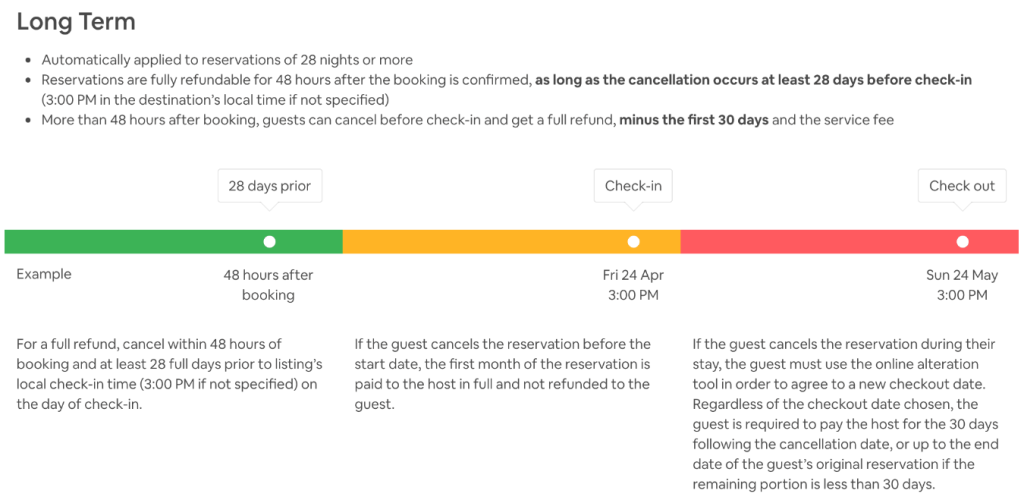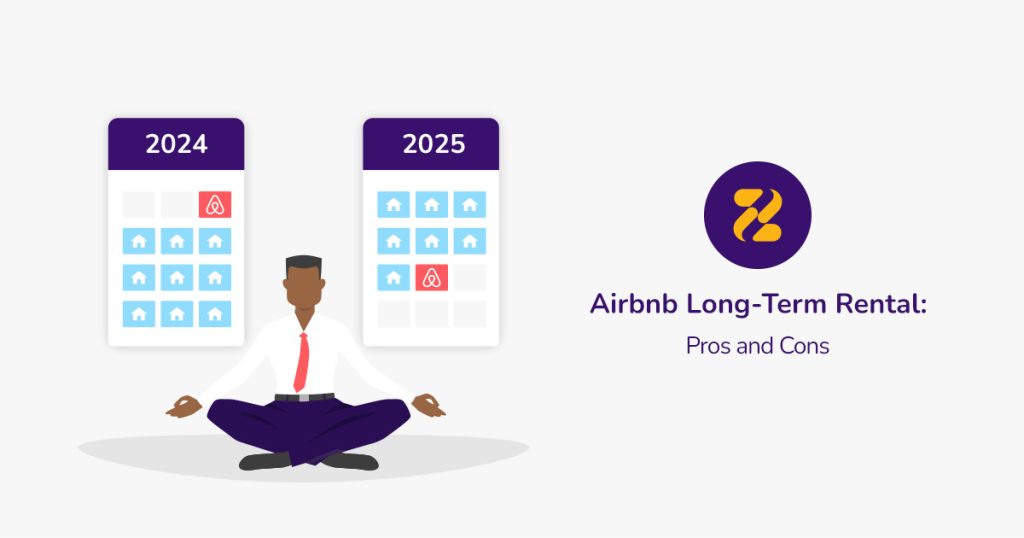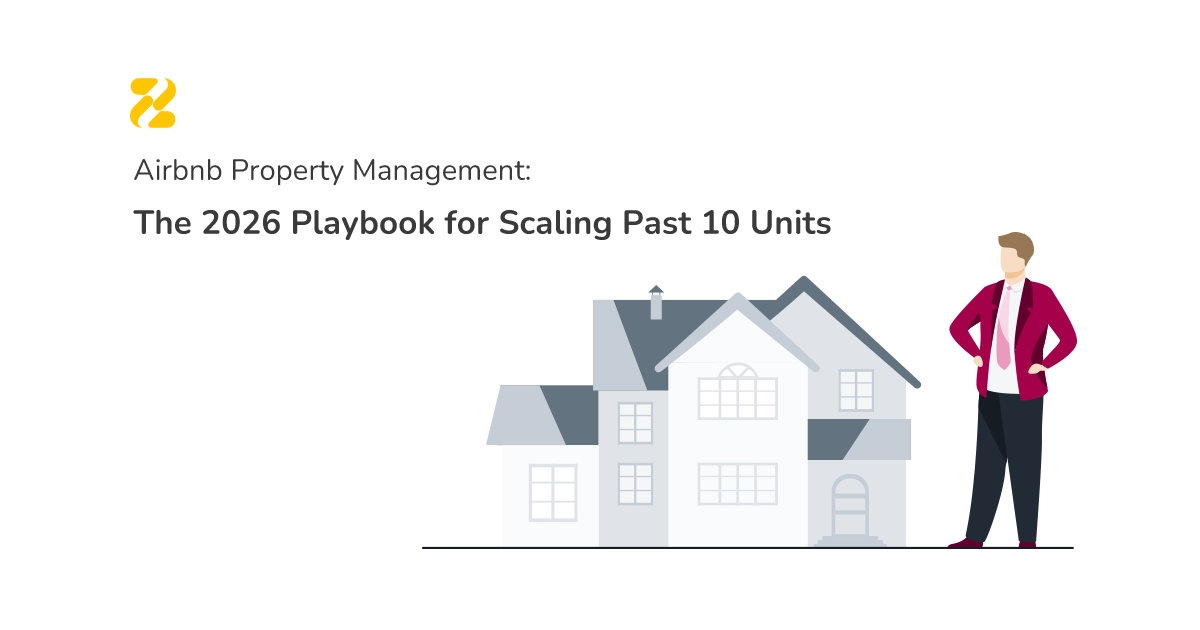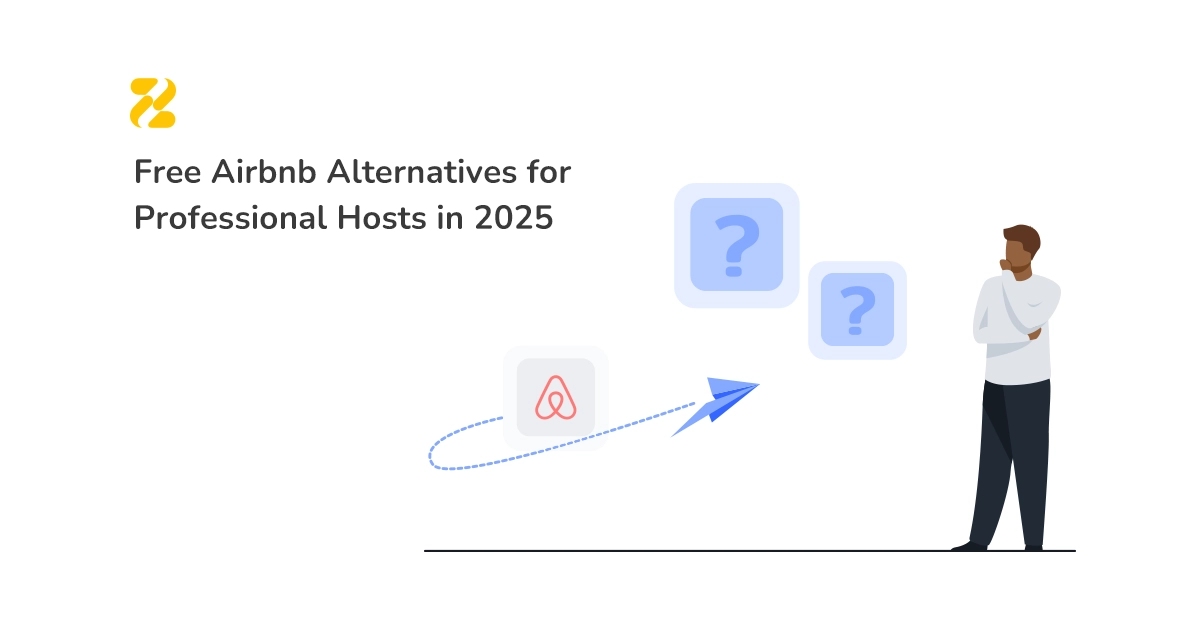
Airbnb’s Extended Stay Feature has been highly appreciated by people working remotely, travellers with work or study purposes and safe accommodation and self-isolation seekers like front-line medical workers.
During the COVID-19 pandemic, travel restrictions led to a surge in demand for staycations. This has highlighted Airbnb’s monthly rentals as a more reliable option for hosts looking for a stable income. This strategy offers hosts easy money and peace of mind while providing guests with cosy accommodation.
Airbnb long-term rental is a great solution for the hosts to guarantee a reliable revenue stream, keep their rooms occupied during the low season, and be able to tackle their mortgage leases. They can attract more bookings by offering monthly discounts to their prospective guests and increase their occupancy rates.
Table of Contents
Long-Term Rental Versus Short-Term Rental
When guests search for stays of 28+ days, Airbnb automatically displays monthly rates instead of nightly fees. So the listings are available to book both for short-term and long-term stays. And it’s up to the hosts to decide whether to accept long-term guests or not.
Airbnb long-term rentals allow property managers to earn expected income from a single guest. This avoids managing multiple short-term rentals and handling guests of different types. However, both methods have their own benefits, as well as downsides. Let’s look at Airbnb long-term rental’s pros and cons.
What Are the Perks?
Steady Income Stream
All property managers want to receive as many bookings as possible to enhance their revenue. Airbnb long-term rental will provide hosts with more predictable and reliable but lower income during quieter months.
Guests booking a property for a month or longer must pay a downpayment for the first month. After that, they will pay monthly, and property managers will receive their income every month.
Reduced Workload
Having only one guest means less work and fewer tasks for the staff. This includes less housekeeping, fewer guest communications, and fewer check-ins and check-outs. As a result, the turnover rate will be lower.
Increased Occupancy Rates
When a host rents their vacation home for longer periods and offers a discount, they become visible to guests seeking long-term accommodation. As a result, they double their chances of getting booked.
Properties rented for a month or more relieve hosts from constantly seeking new bookings. This also eases their worries about filling calendars during quieter months. Airbnb long-term rentals can boost occupancy and generate consistent rental income.
What Are the Drawbacks?
Lower Profit Potential
As there is a monthly discount for this type of stay, the vacation rental managers can’t earn maximised profits from long-term renters. Although the hosts will receive a fixed monthly fee which provides them with a stable income, they can’t earn more during the peak seasons.
Fewer Guest Reviews
You can earn more reviews from short-term bookers. This is particularly important for new hosts on Airbnb who are looking to improve the search ranking of their listings.
Increased Expenses
Short-term rental bookers are usually vacationers who are staying at your property for business or leisure purposes. They come to explore the city and enjoy themselves. In most cases, these types of travellers usually spend fewer hours at home and just use basic amenities. So, don’t make a big mess unless you run into the party-type guests.
In contrast, long-term renters spend more time in your home, cook their own meals and do their laundry on site. So, they may cause more wear and tear, make more maintenance and repair requirements, and raise your utility bills and expenses.
Why Airbnb?
Renting out with Airbnb for short-term stays is quite common in over 220 countries and 100K cities all around the world. But, why do people prefer Airbnb to traditional real estate agencies for renting long-term accommodation?
Airbnb long-term rental attracts guests seeking stays that are somewhere in between short and long-term rentals. They don’t want to get locked into year-long leases and deal with tedious paperwork.
Airbnb is a global website with an intensive database of rentals and property options. It offers a wide range of listings with meticulous photos, lists of amenities, house rules, and discounted prices.
Plus, travellers can find fully furnished units with a kitchen, Wi-Fi, and the amenities they need to live comfortably for a month or longer. Moreover, as the rent on Airbnb listings is all-inclusive, the guests don’t need to worry about handling utilities and bills.
How to Gear Your Listings Up for Airbnb Long-term Rentals
Here are key tips for vacation rental and serviced apartment managers to optimise their Airbnb listings for long-term rentals.
1. Learn about Your State Laws and Local Regulations
Before renting out long-term, ensure compliance with state and local laws to avoid violating them. Airbnb long-term rental is prohibited or restricted to some regulations in several countries for protecting the local property business or other reasons.
You can’t just rely on Airbnb. It’s all on you to take care of local Airbnb regulations and tax rules for long-term rentals in your community.
2. Set Long-Stay Discounts
Set a reasonable weekly or monthly price to attract guests who are seeking long-term rentals. Guests seeking long-term stays also look for listings with monthly discounts shown next to the total price. Some guests may even take a further step and contact you to bargain their ideal price and ask for more reduction.
3. Add Long-Term Stays Cancellation Policy to Your Listing
Airbnb has a specific cancellation policy that is automatically activated for bookings of 28 nights and more. Under this policy, long-term reservations can be refunded if cancelled at least 28 days before check-in, within 48 hours of booking confirmation. More than 48 hours after the booking confirmation, the booking will still be refundable except for the first month of the stay.
Adding this strict cancellation policy to a listing can firmly protect hosts from the loss of bookings that might happen as a result of blocking the dates by a long-term guest.

4. Screen Your Guests Carefully
Airbnb background checks will not be helpful with long-term guests. So you should evaluate your potential guests and try to find the troublemakers who might damage your rental and its reputation. Since your guests will stay longer, it’s crucial to assess if they’ll meet your rental’s terms and conditions.
Read our blog post “All You Need to Know about Tenant Screening” to learn more about guest screening methods.
5. Don’t Forget to Sign a Rental Agreement
As there are no tenant leases for Airbnb long-term rentals, require your prospective guests to sign rental agreements. You can ask your guests to sign the agreement on their arrival or send them a digital copy of your contract.
Think about all the things that are likely to go wrong and consider their possible outcomes. Specify the rules regarding overstays and evictions.
6. Make Sure You Have the Essential Amenities for Longer Stays
Put yourself in the shoes of people who are most likely to book your property for a long-term stay. Figure out who they might be and what facilities they may need.
Some of the most popular amenities among long-term rental seekers are a fully equipped kitchen, laundry equipment, parking, cleaning supplies, and high-speed Wi-Fi.
Your guests who rent for longer might look for work-friendly and pet-friendly spaces. They will be in search of comfort and fundamental amenities rather than elegant facilities and luxuries.
7. Write a Thorough House Manual for Your Property
Your long-term guests will surely need a detailed house manual containing instructions and recommendations for their day-to-day living at your property. Make sure that your house rules include the instructions for cleaning.
Guests staying longer are usually responsible for laundry, garbage, and buying cleaning supplies. So, you should be specific about cleanliness expectations and their duties during their stay.
Final Tips for Airbnb Long-Term Rental Enthusiasts
- You must choose between renting your property for profitable short-term stays or longer terms at discounted rates based on your property’s location, local demand, and amenities.
- If you’re new to Airbnb, begin with short-term bookings to get accustomed to hosting and dealing with guests. Once comfortable, consider Airbnb long-term rentals.
- Long-term renting on Airbnb provides stable income during travel off-seasons, even though it’s less profitable than short-term rentals. This reliability comes when demand for short-term options drops.




